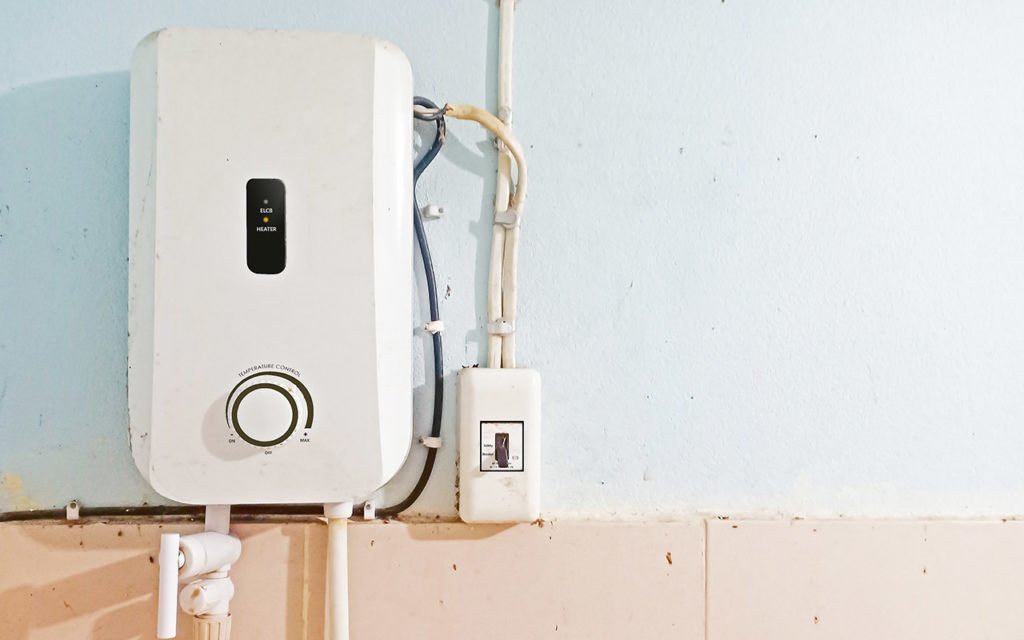
In certain circumstances, traditional water heaters are too bulky and cumbersome to fit into a home properly. In these cases, one might opt to install a tankless water heater. Also known as instantaneous, continuous flow, or on-demand water heaters, this alternative option heats water as it flows through the device. So what are the pros and cons of installing a tankless water heater?
A tankless water heater attaches directly to the wall of a home or building. It does not feature a water basin but instead a heat exchange coil that brings the water up to the proper temperature on-demand. This type of heater can provide hot water at a rate of roughly 2–5 gallons per minute.
When you turn on the hot water, cold water will move directly through the pipes and into the tankless water heater. From there, the heating elements will bring the water to the proper temperature instantaneously for immediate use. It allows for a constant supply of hot water.
There are gas-fired and electric tankless water heaters. Gas-fired filters tend to produce a higher flow rate than their electric counterparts. Gas-fired may be more suitable for large families who go through a lot of water. Those with higher hot water needs might also require more than one tankless water heater.
Once the water comes up to temperature, tankless water heaters can provide a steady stream of hot water instantly. It can heat up enough for a person to take a hot shower, do the dishes, or run the laundry machine with no problem. This is a major benefit considering how much space a tankless water heater can save.
Tankless water heaters tend to last longer than traditional water heaters. The highest quality traditional water heaters will last roughly a decade. A tankless water heater will last twice as long. This is a great investment considering you have a whole extra decade worth of heating to take advantage of.
According to Consumer Reports, tankless water heaters are roughly 22% more efficient than a standard option. This type of water heater tends to use less energy and ultimately help a homeowner lower their electricity bills. You can expect to save hundreds of dollars annually.
One of the most compelling benefits of the tankless water heater is its sleek, compact design. They are much smaller than traditional heaters. Your contract will mount it on the wall in an inconspicuous place such as a basement or utility closet. This can be a great perk for smaller homes.
Unfortunately, tankless water heaters might not always offer consistent temperatures. It is often due to the heater's inability to handle multiple outlets of water at the same time. You may also notice that the tankless water heater won’t turn on if you don’t turn a faucet on completely.
Tankless water heaters are a lofty investment. They can be anywhere from $1,000 to $2,000. A traditional model will cost an average of $500 before labor fees. The unit itself and the labor of its specialized installation can rack up quite the price tag. But they will typically last longer than a traditional water heater.
While a tankless water heater can provide a steady stream of hot water, it isn’t an unlimited supply. Most models can handle several gallons at a time. This is perfect for a single person to take a hot bath. But if someone else in the household is washing dishes or doing laundry, the tankless heater might not be able to provide enough hot water to keep up. A traditional water heater supplies roughly 30 to 80 gallons of hot water – plenty to handle a whole home’s hot water needs.
Most homes are equipped to run on a standard water heater. Tankless water heaters require a specialized, non-traditional installation process. There can be a lot of intricate rerouting and additional steps involved in setting up a tankless water heater. Since it can be an involved process, installing this type of water heater can be more expensive.